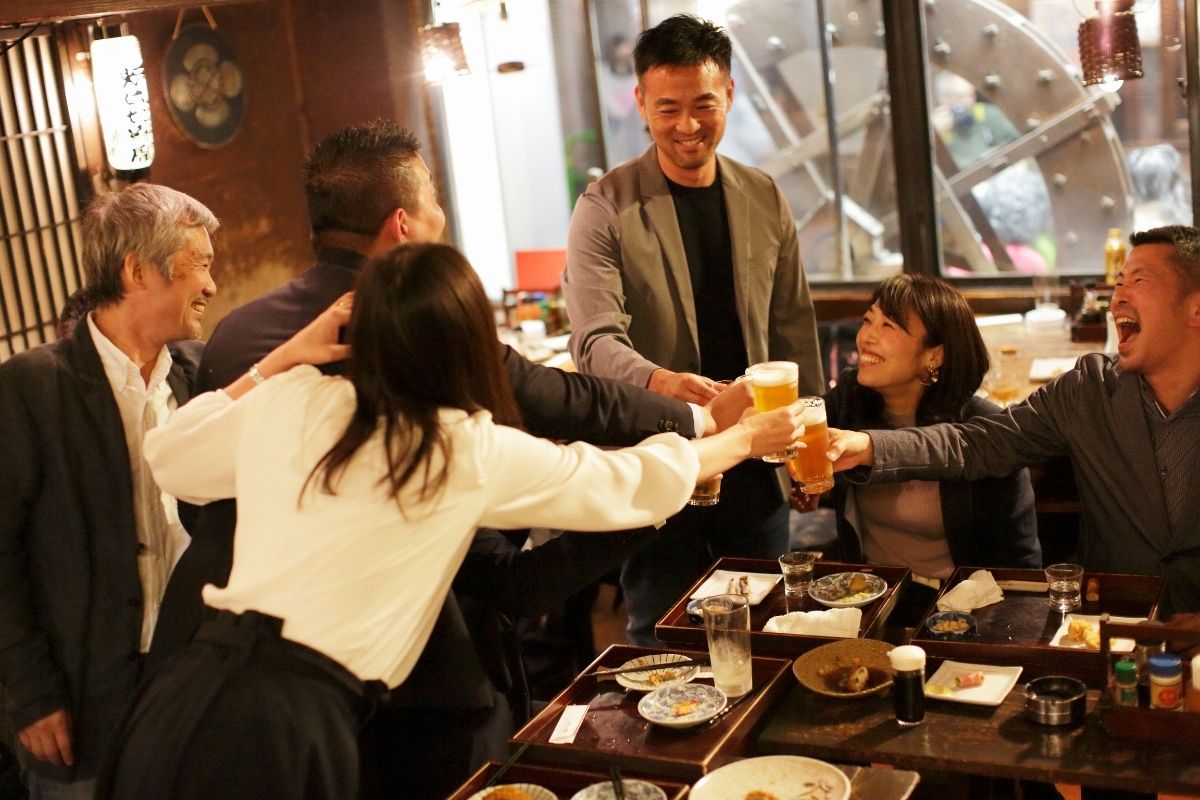Are you soon planning a stay in the wonderful country of Japan or possibly just studying Japanese customs and culture for a class or simply to satisfy your personal curiosity? There is a custom of introductions in Japan that is rather important to understand and practice with the utmost sincerity for making a good impression and also a lasting relationship with the Japanese people you meet.
Hajimemashite

This is a common introductory phrase in polite Japanese mainly used in more formal and business situations. “Hajimemashite” (pronounced “Hah-jee-may-mah-she-tay”) essentially means “This is our first time to meet”. It is only to be used upon an actual initial introduction and not after a long conversation or evening out together.
Yoroshiku Oneigaishimasu
This is essentially what you say after the above Hajimemashite is stated. You can also say “Yoroshiku oneigaishimasu” (pronounced “Yo-ro-she-ku-oh-nay-guy-shi-mas”) by itself without Hajimemashite in less formal situations or if it is not an initial introduction happening upon your first conversation.
Yoroshiku oneigaishimasu basically means “Please be good to me” and is a great introduction in general, especially in Japan as Japanese culture is consciously interdependent. It was an important statement to make in traditional Japanese society as both parties may have initially been somewhat unaware of the other person’s social status.
If one was considered higher later on, the introduction would serve in some way to benefit and protect the other person in the relationship.
Social hierarchy, although traditionally important, is thankfully no longer practiced or supported in the traditional way by most of the younger generations. A more casual introduction you may hear in Japan is simply “Yoroshiku”.
Meishi (Business Card)

Upon meeting someone in Japan you may be presented a business card, called “Meishi” in Japanese and pronounced “May-she”. It will likely be given to you with the presenter holding the card extended toward you at its bottom two corners with both hands.
The presenter may bow while doing so. It is important to accept the card with both hands at the top two corners of the card without covering any information and then to look at the card with great interest and remark positively about something on the card.
Afterward, if given at the beginning of a meeting or somewhere with a table, place the card on either your own card case or on the table in front of you. DO NOT fold the card or place it in your back pocket. Place it into a front shirt pocket or a card case if at all possible. Otherwise, simply hold it in your hand carefully until you are alone and can place it somewhere for safe keeping.
Bowing In Japan

Bowing In Japan
Resist bowing if at all possible. As a non-Japanese person, you are not expected to bow at all. Best of all you are offering your Japanese companions a rest from their complex social game of bowing.
Bowing is a complex psychological power struggle in Japanese culture and it is best to avoid it at all costs. If you are, for instance, nice to someone you just met and accidentally bow deeper in reply to a bow from that person it could trigger a programmed psychological response.

Japan Business Rules – The Bow
Sadly, if that person had considered themselves to be lower in status than you, they will possibly take the opportunity for a foolish attempt to climb a social status ladder that is non-existent to you. They may change their attitude and immediately ruin their chances to have any possible relationship with you.
Sad, but true that many males especially may actually be focused on social power struggles as it is a subtle social game in Japanese business culture.
Hopefully, you are now on your way to appropriately pleasant Japanese introductions and your relationships will be a better success for knowing how to greet your new friends.
